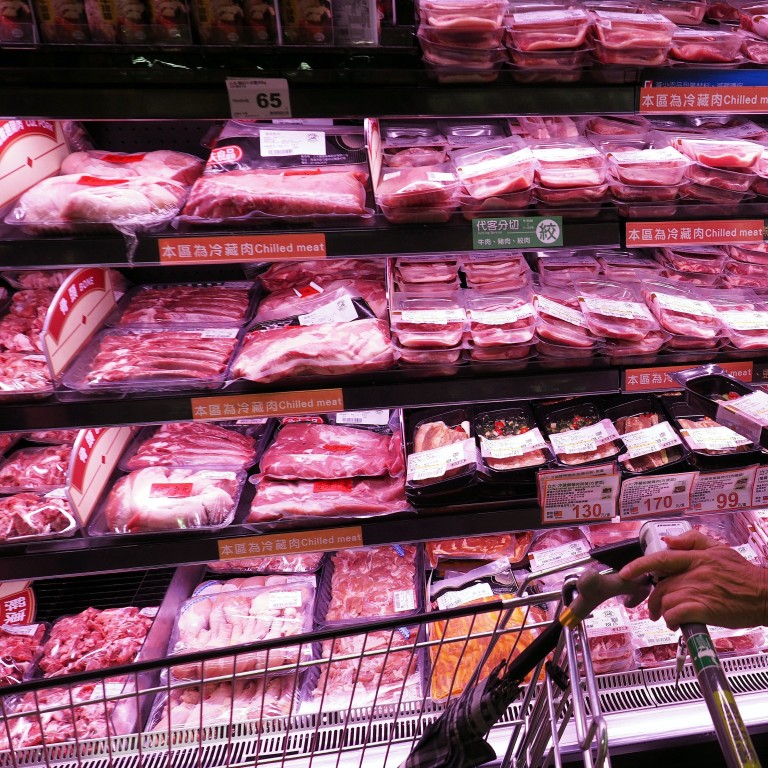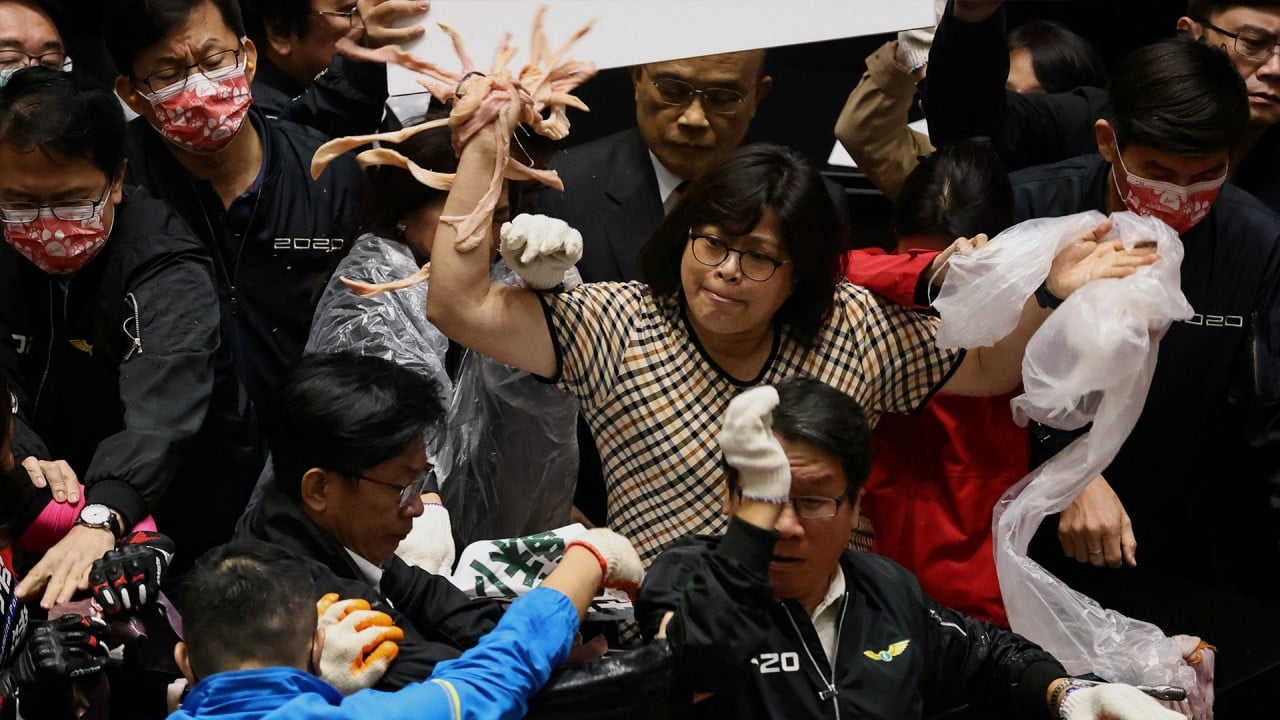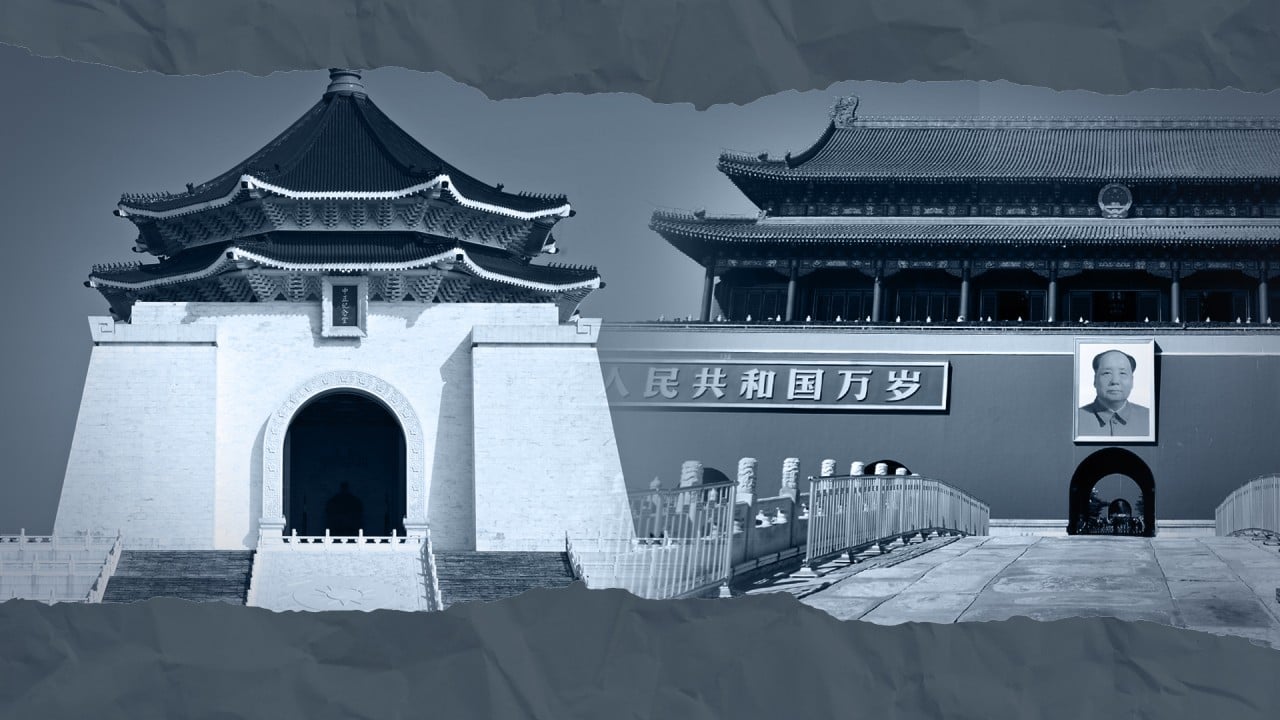
Ractopamine: China ‘will tighten ban on Taiwanese meat’ over US pork imports
- More inspections needed after Taiwan lifted its ban on imported American pork containing leanness agent ractopamine, government spokeswoman says
- Mainland prohibits products containing ractopamine, and stopped imports of Taiwanese meat in 2014
At a press conference in Beijing on Wednesday, a spokeswoman for the Taiwan Affairs Office said meat and associated products from the island were already barred from entry to the mainland but the ractopamine issue increased the need for enforcement.
“China has long banned the use of ractopamine in its animal farms and prohibited the import of meat products with such agents,” the office’s spokeswoman Zhu Fenglian said. “To protect the safety of Chinese consumers and to prevent bird flu and other epidemics from spreading here, [we] will strictly bar Taiwan-produced meat products and shipments of such products from entry.”

02:04
Pig guts fly in Taiwan parliament protest over easing of restrictions on US pork imports
Zhu was responding to a query about the mainland’s response to Taiwan allowing US pork containing the leanness agent.
Officially, the mainland stopped imports of Taiwanese meat in 2014. Inspections would need to be stepped up to prevent such products getting in, Zhu said.
“This will include checking parcels sent to China and belongings carried in by passengers at customs,” she said, adding that processed meat products included meat floss, pork jerky, meat condiments and seasoning.
Although it has remained a large importer of American pork, China has insisted on products not containing ractopamine, which has been linked to health hazards. The European Union, too, has banned meat produced using the agent.
Taiwan’s agriculture minister Chen Chi-chung said on Thursday that Taiwan produces about 800,000 tonnes of pork a year but exports only 4,000 tonnes of pork and processed pork products, meaning the mainland’s ban had a relatively small impact.

10:22
Why has the relationship between the Chinese mainland and Taiwan taken a turn for the worse?
“Actually, we have never sold any freshly slaughtered pork to China,” he said.
Taiwan’s Mainland Affairs Council, which charts its policy regarding the mainland, said in a statement that Taiwan, too, prohibits the use of ractopamine for its hogs and cattle.
“Hog farmers in Taiwan are barred from using ractopamine, but since late 2014, mainland China has unilaterally stopped importing our [processed pork] products on the ground that we have bird flu, and until now has yet to respond to our inquiry about the stoppage,” it said.
US pork exports to China surge beyond pre-trade war levels
Taiwan had banned American pork containing ractopamine until this year, when it began permitting US pork with an internationally acceptable level of the agent.

